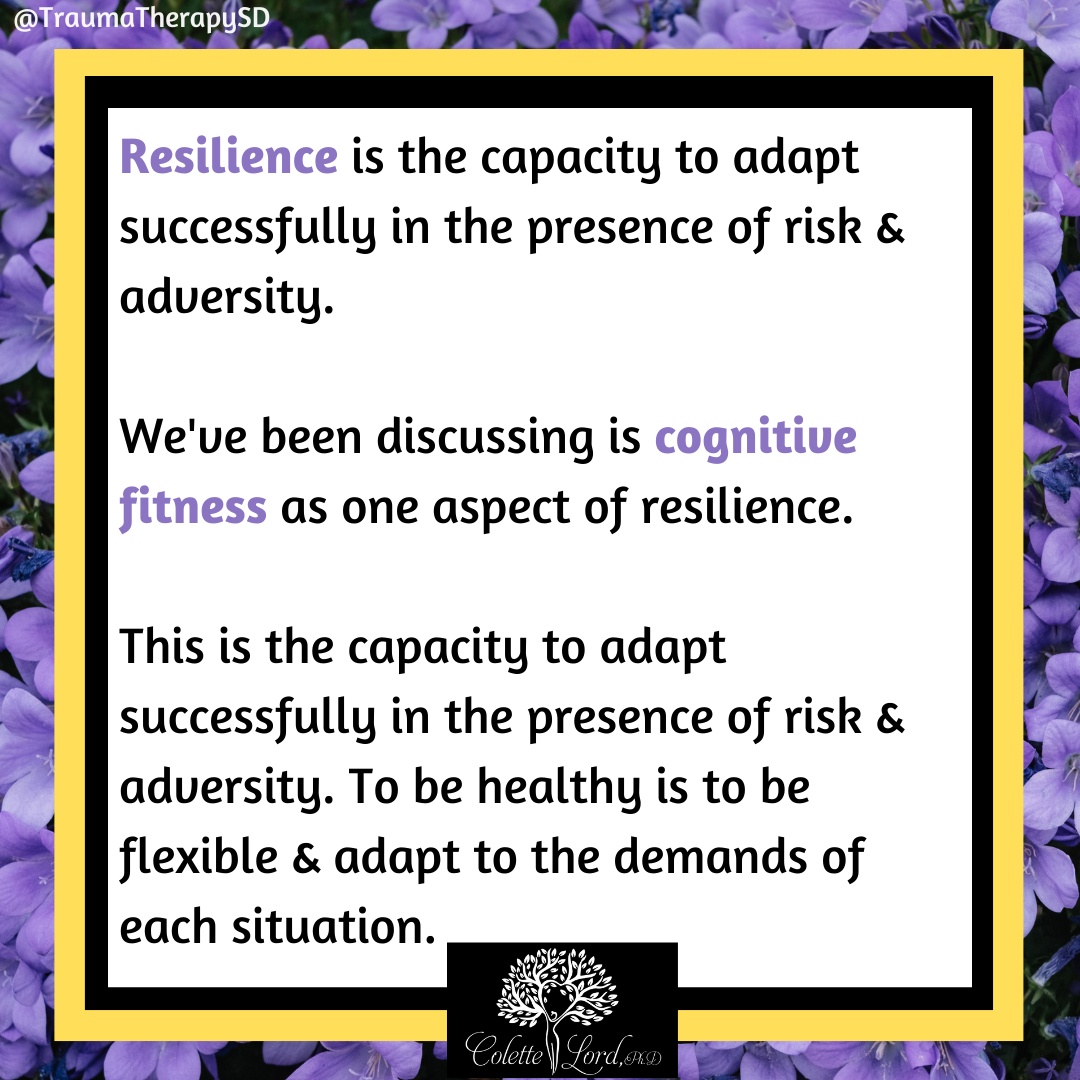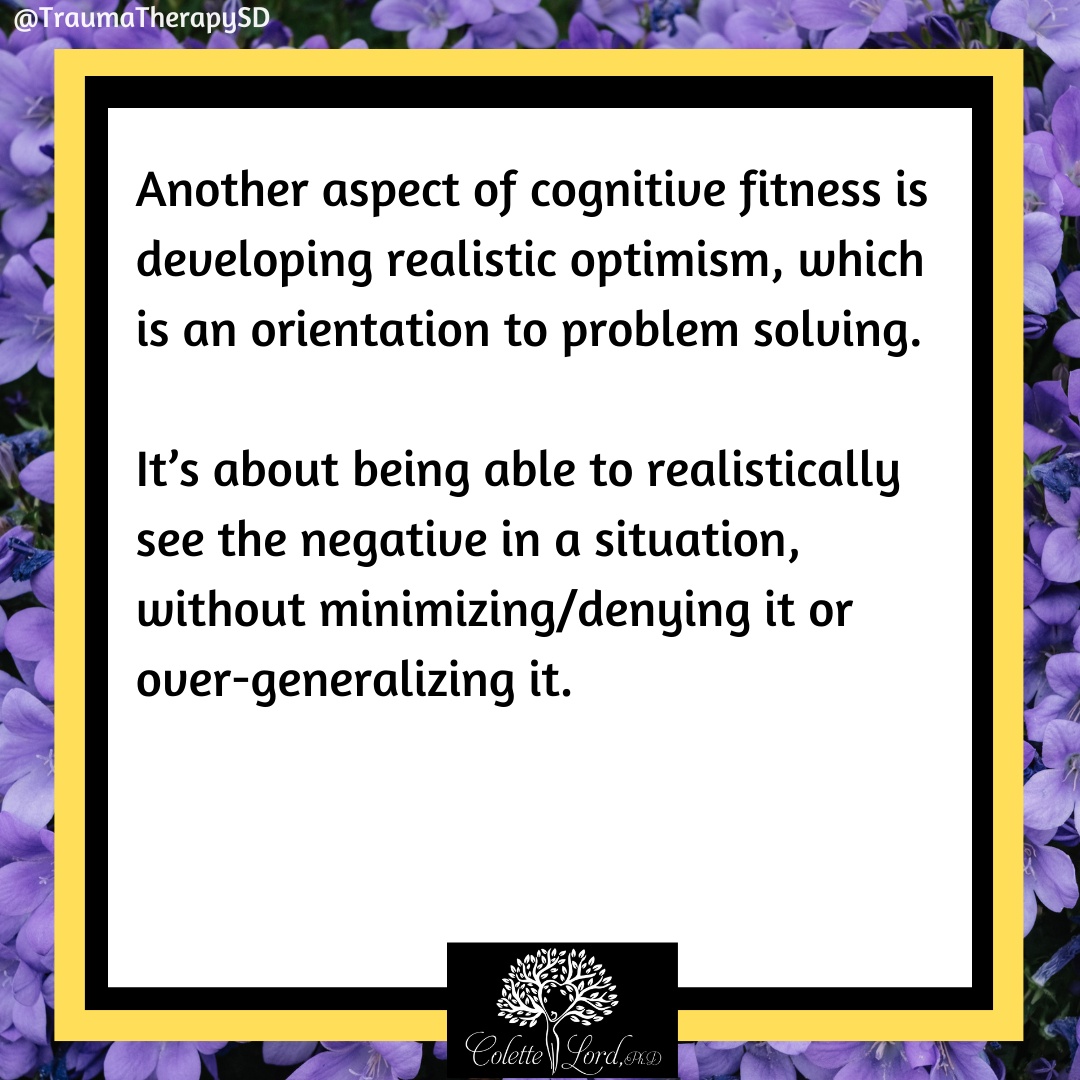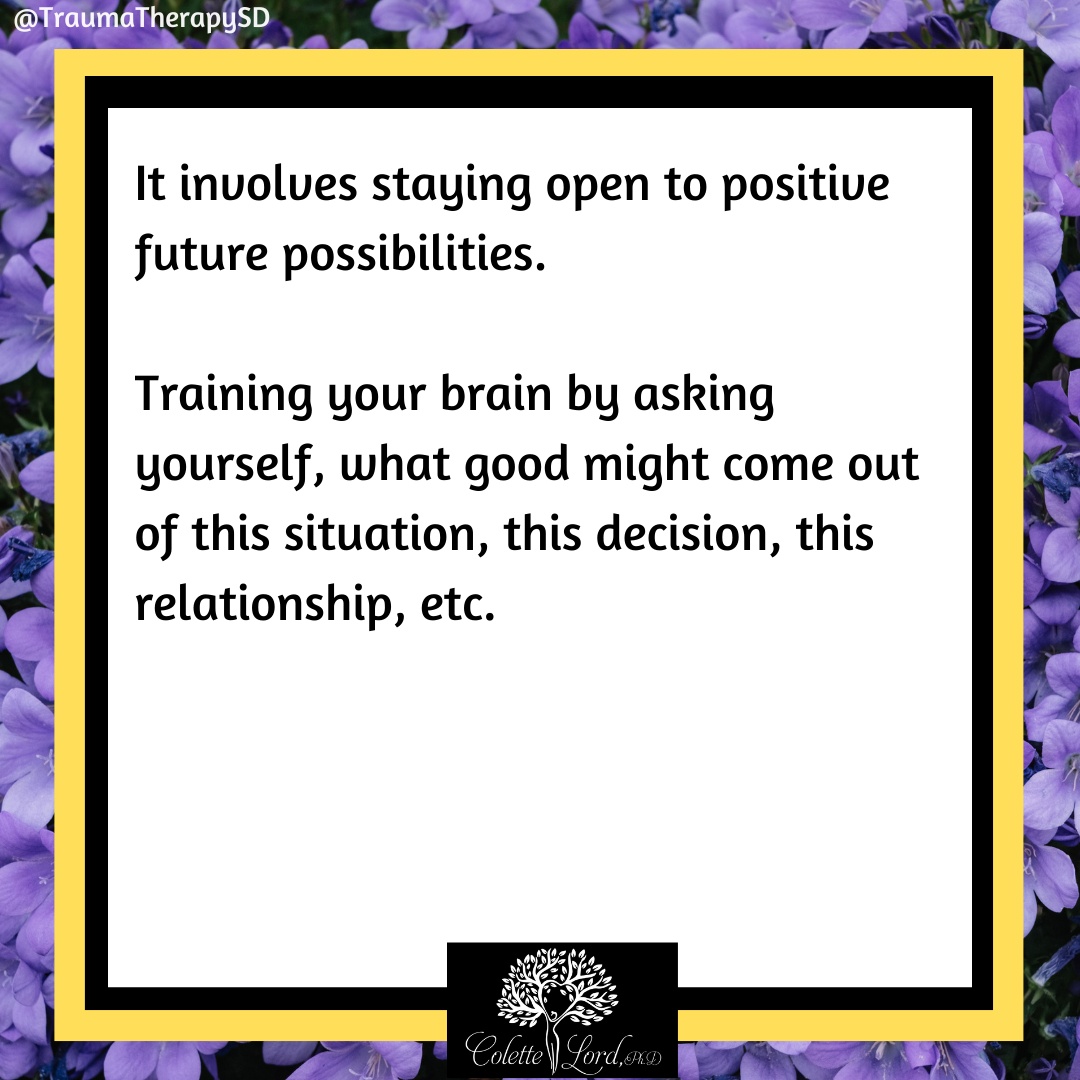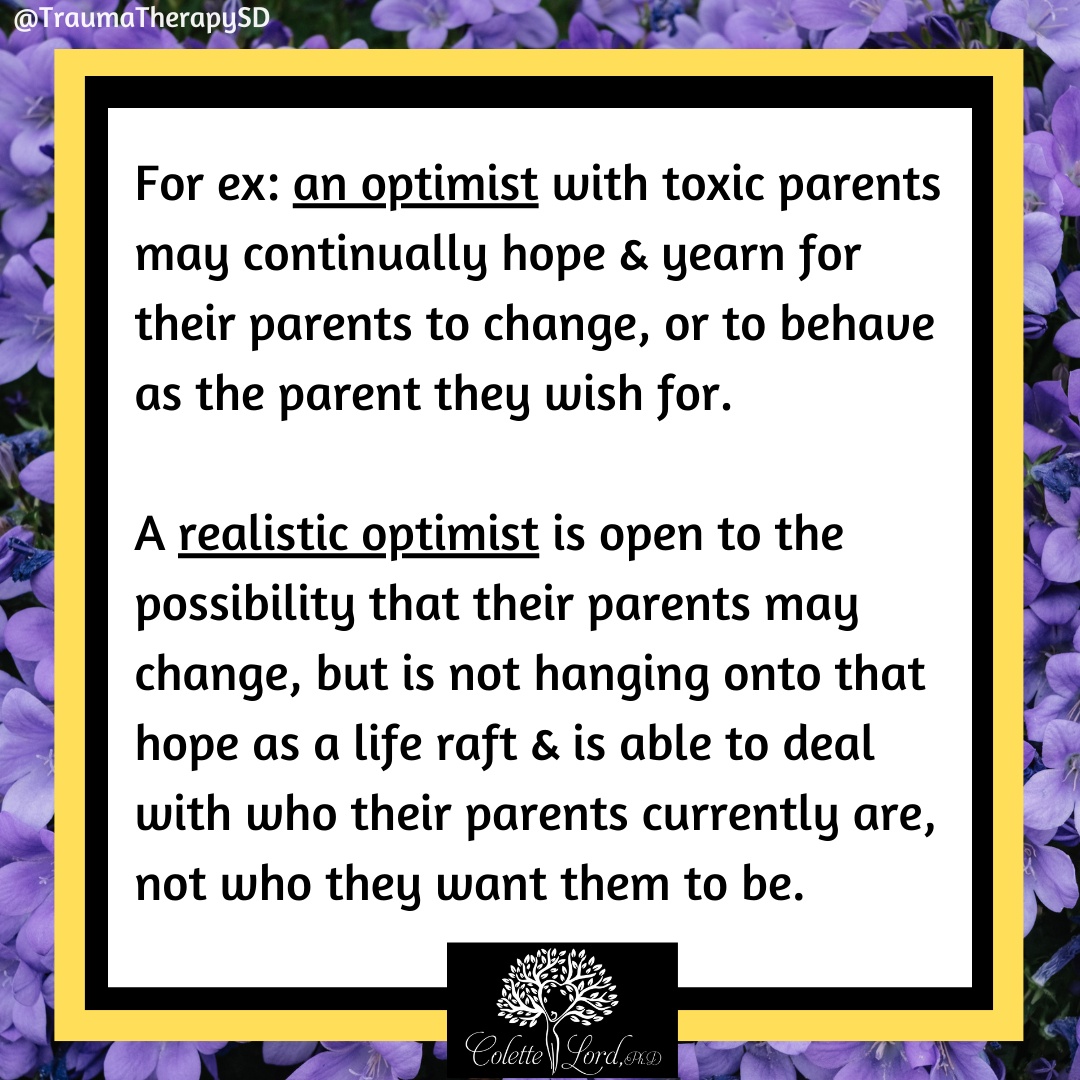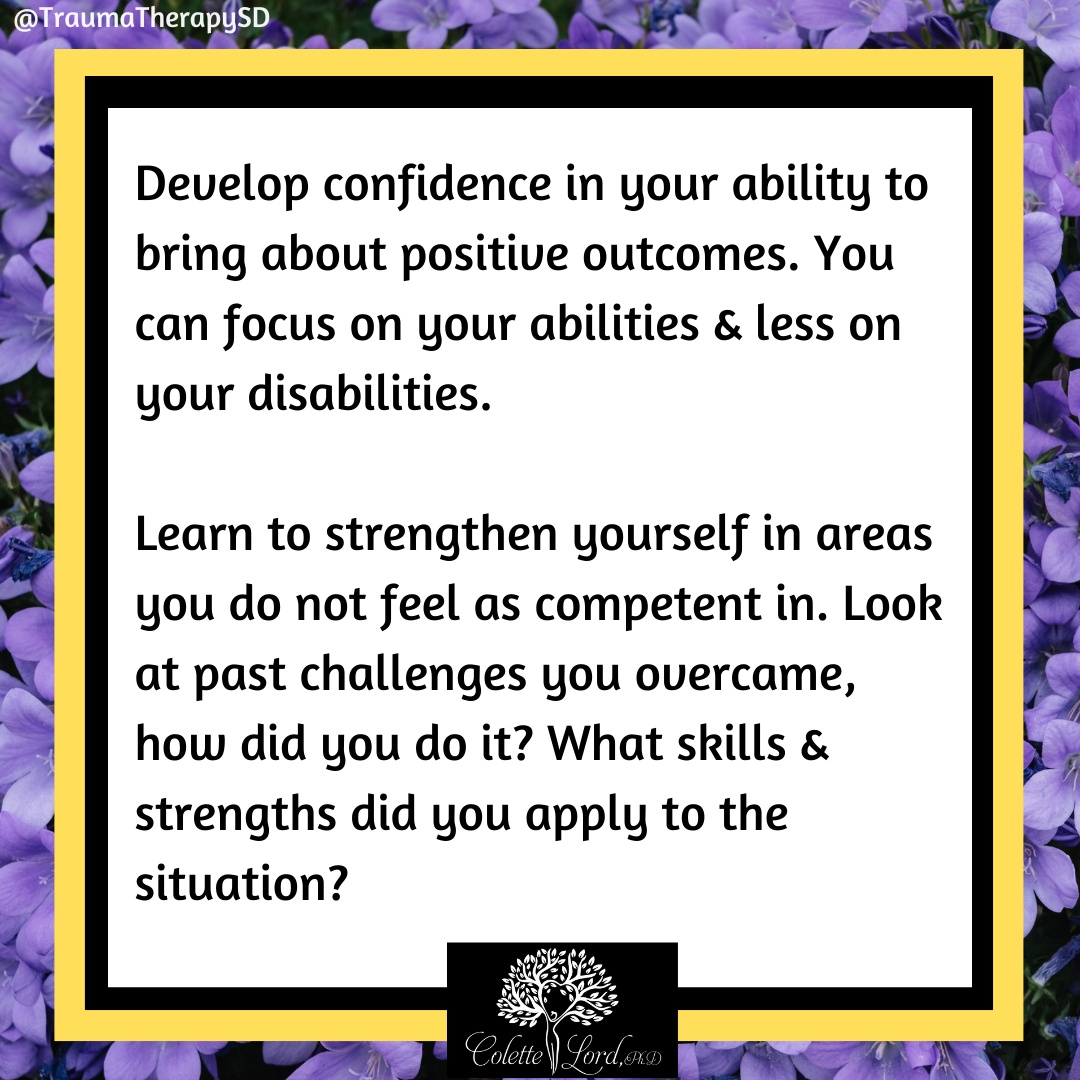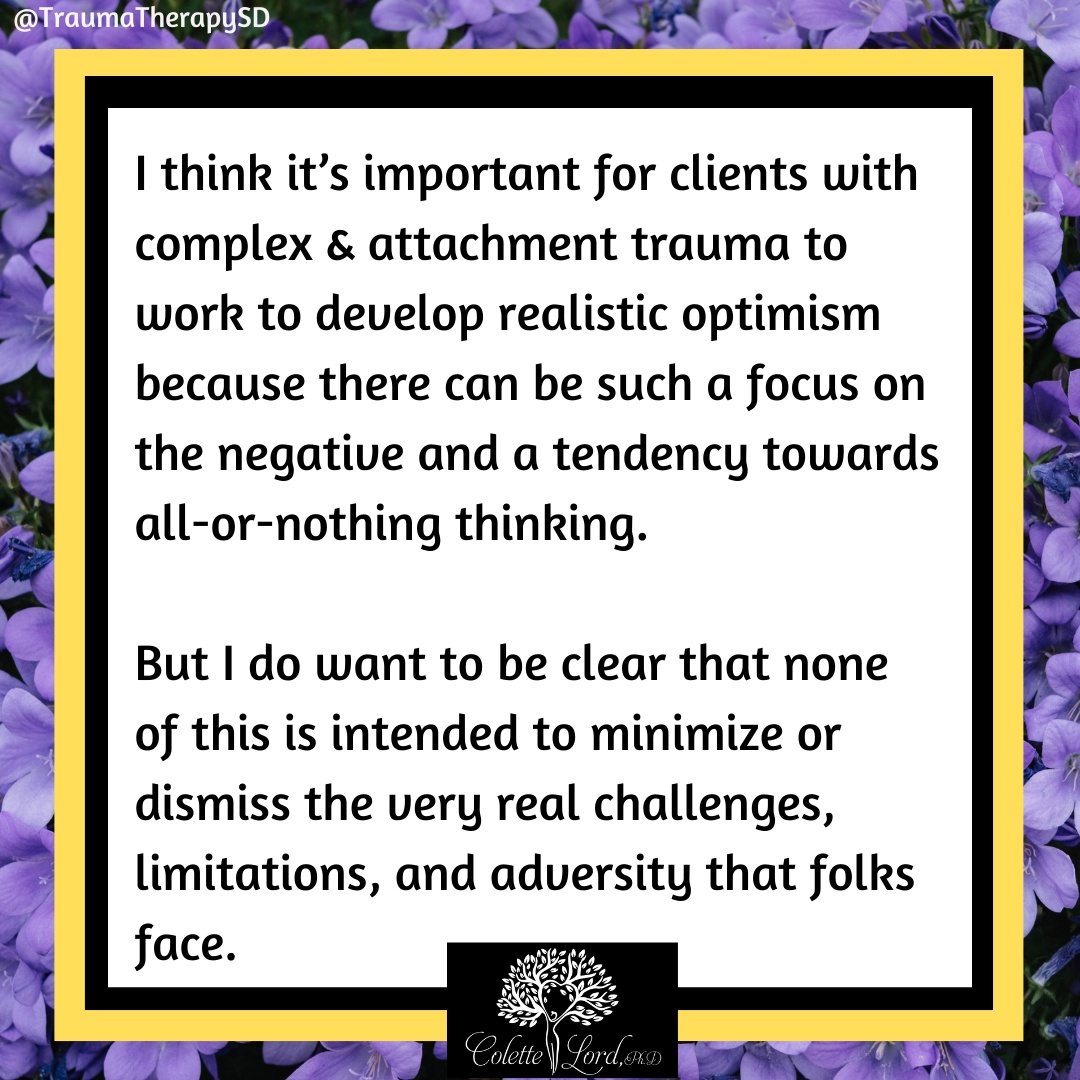More Cognitive Resilience
Resilience is the capacity to adapt successfully in the presence of risk & adversity. We’ve been discussing is cognitive fitness as one aspect of resilience.
This is the capacity to adapt successfully in the presence of risk & adversity. To be healthy is to be flexible & adapt to the demands of each situation.
Another aspect of cognitive fitness is developing realistic optimism, which is an orientation to problem solving. It’s about being able to realistically see the negative in a situation, without minimizing/denying it or over-generalizing it.
At the same time, it’s important to not over-generalize the positives in a situation so that you only see the future through rose colored glasses.
It involves knowing yourself, do you tend to over-generalize the positive or the negative?
It involves staying open to positive future possibilities. Training your brain by asking yourself, what good might come out of this situation, this decision, this relationship, etc.
For example, an optimist with toxic parents may continually hope & yearn for their parents to change, or to behave as the parent they wish for.
In contrast, a realistic optimist is open to the possibility that their parents may change, but is not hanging onto that hope as a life raft & is able to deal with who their parents currently are, not who they want them to be. Develop confidence in your ability to bring about positive outcomes. You can focus on your abilities & less on your disabilities.
Learn to strengthen yourself in areas you do not feel as competent in. Look at past challenges you overcame, how did you do it? What skills & strengths did you apply to the situation?
I think it’s important for clients with complex & attachment trauma to work to develop realistic optimism because there can be such a focus on the negative and a tendency towards all-or-nothing thinking. But I do want to be clear that none of this is intended to minimize or dismiss the very real challenges, limitations, and adversity that folks face.

